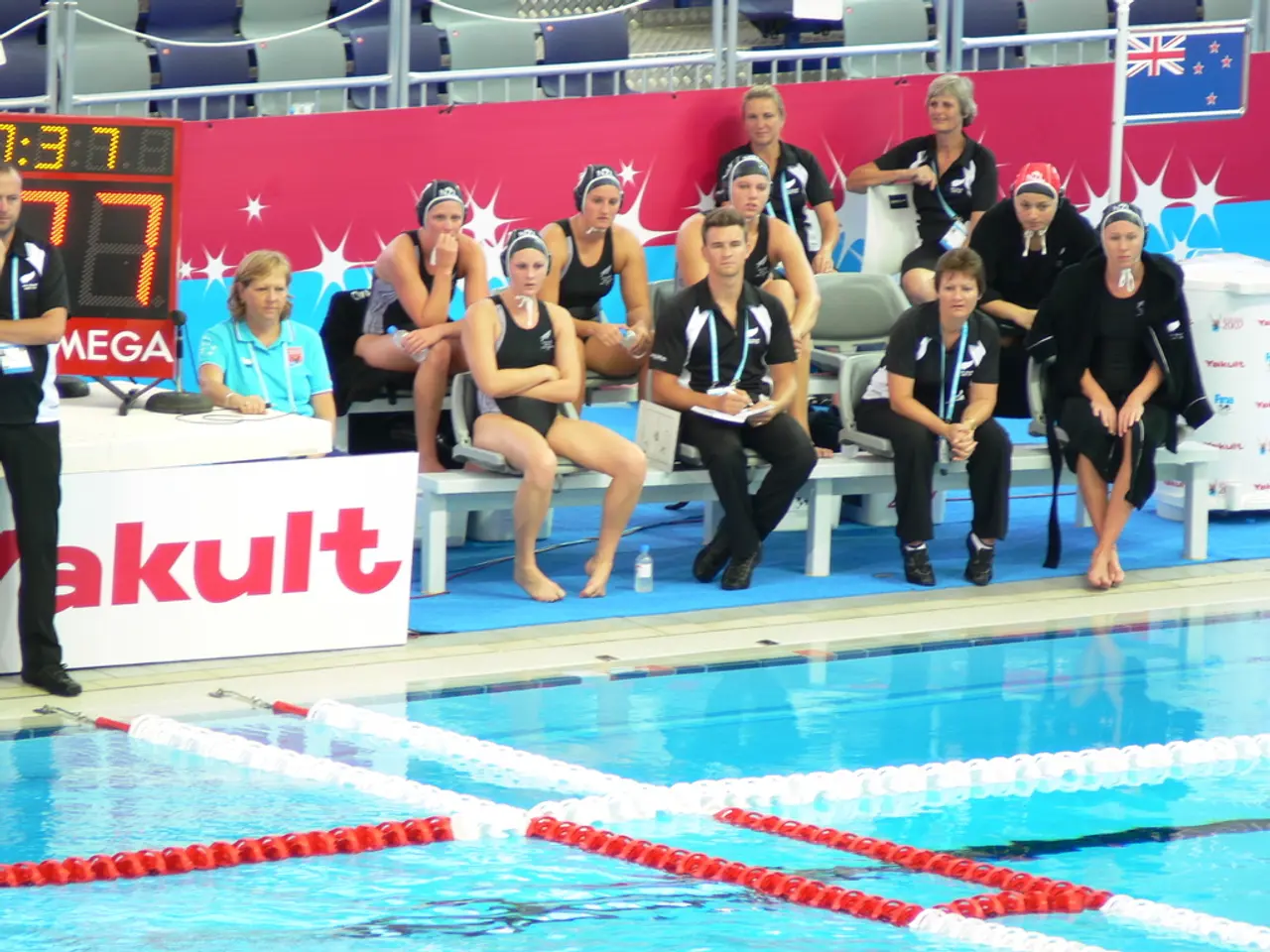U.S. Senators Shaheen and Murkowski Propose $54.6 Billion in Aid for Ukraine Support
In the heart of August 2025, a bipartisan coalition in the US Senate is working tirelessly to pass substantial additional aid bills for Ukraine, with a proposed $54.6 billion military aid package at the forefront [2]. This ambitious plan, spearheaded by Republican Lisa Murkowski and Democrat Jeanne Shaheen, aims to provide defence, medical, humanitarian, and financial assistance to Ukraine [1].
The Senate Appropriations Committee has already approved an $852 billion Defense Department budget, which includes $800 million for the Ukraine Security Assistance Initiative (USAI) and $225 million for the Baltic Security Initiative [1]. This move underscores the committee's continued support for Ukraine, despite opposition from the Trump administration, which seeks to reduce military aid to Ukraine [1][2].
However, the path to passing these aid bills is not without obstacles. One of the significant hurdles is the opposition from President Trump and his administration, which has advocated for cuts to Ukraine funding and a cease-fire deadline for Russia [1][2]. Moreover, there is a potential veto threat from the White House if the bills pass both chambers, as Trump could reject the aid legislation after Congressional approval [2].
Another challenge lies in the differences between Senate and House proposals. The House's Pentagon budget aligns more closely with Trump's requested reductions, making reconciliation between chambers difficult [2]. Furthermore, the general struggle within a Republican-controlled Congress to unify around foreign military aid to Ukraine amid diverging views on US involvement adds to the complexity [2].
In the House of Representatives, a bill (H.R. 2913) authorising support for Ukraine has been introduced and is under preliminary procedural consideration, but it has yet to make significant progress [3].
Despite these challenges, if Senate Republicans and Democrats pass the newly proposed legislation by Shaheen and Murkowski, and if the White House continues its shift toward providing additional aid to Ukraine, Speaker of the House Mike Johnson may be persuaded [4]. Kentucky Senator Mitch McConnell has stated that shutting off engagement with Ukraine would undermine the military's efforts to prepare for the modern battlefield [4]. Delaware Senator Chris Coons noted that there is broad enthusiasm for bringing Russia's war to a just conclusion, but also broad awareness that this means not peace at any price [4].
The aid, combined with aid from other countries, has played a crucial role in helping Ukraine defend itself from Russia's ongoing invasion. According to various governments and independent reports, the Russians have sustained over one million casualties during the war [1]. The Ukrainians have also made significant strides in defeating the Russian military, with the destruction of two-thirds of Russia's pre-invasion tank force and decimation of nearly half of Russia's naval fleet on the Black Sea [1].
However, critics within the United States have argued that aid to Ukraine has been costly and that the US should prioritise domestic programs [1]. According to the Kiel Institute for the World Economy, the assistance equates to just two cups of coffee per US citizen per month [1].
As the situation in Ukraine continues to evolve, the outcome of these bipartisan efforts will have significant implications for the future of the conflict and the relationship between the US and Ukraine. The final passage and enactment of these aid bills depend on overcoming these political and procedural challenges in the coming weeks [1][2][3][4].
- The bipartisan coalition in the Senate, led by Jeanne Shaheen and Lisa Murkowski, is seeking to pass substantial aid bills for Ukraine, including a $54.6 billion military aid package, amidst opposition from President Trump, who advocates for cutting Ukraine funding and a cease-fire deadline for Russia.
- As Speaker of the House Mike Johnson may be persuaded if the Senate passes the newly proposed Ukraine aid legislation by Shaheen and Murkowski, the final passage and enactment of these bills depend on overcoming political and procedural challenges in the coming weeks, with implications for the future of the Russo-Ukraine war and the relationship between the US and Ukraine.






